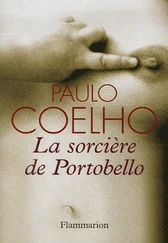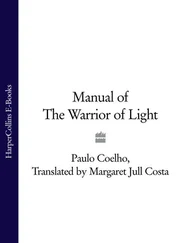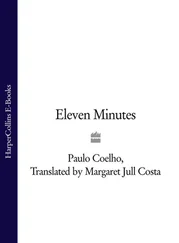Paulo Coelho - Adultery
Здесь есть возможность читать онлайн «Paulo Coelho - Adultery» весь текст электронной книги совершенно бесплатно (целиком полную версию без сокращений). В некоторых случаях можно слушать аудио, скачать через торрент в формате fb2 и присутствует краткое содержание. Год выпуска: 2014, ISBN: 2014, Издательство: Knopf Doubleday Publishing Group, Жанр: Старинная литература, на английском языке. Описание произведения, (предисловие) а так же отзывы посетителей доступны на портале библиотеки ЛибКат.
- Название:Adultery
- Автор:
- Издательство:Knopf Doubleday Publishing Group
- Жанр:
- Год:2014
- ISBN:978-1-101-87409-7
- Рейтинг книги:2 / 5. Голосов: 2
-
Избранное:Добавить в избранное
- Отзывы:
-
Ваша оценка:
- 40
- 1
- 2
- 3
- 4
- 5
Adultery: краткое содержание, описание и аннотация
Предлагаем к чтению аннотацию, описание, краткое содержание или предисловие (зависит от того, что написал сам автор книги «Adultery»). Если вы не нашли необходимую информацию о книге — напишите в комментариях, мы постараемся отыскать её.
Adultery — читать онлайн бесплатно полную книгу (весь текст) целиком
Ниже представлен текст книги, разбитый по страницам. Система сохранения места последней прочитанной страницы, позволяет с удобством читать онлайн бесплатно книгу «Adultery», без необходимости каждый раз заново искать на чём Вы остановились. Поставьте закладку, и сможете в любой момент перейти на страницу, на которой закончили чтение.
Интервал:
Закладка:
I resort to the trump card that never fails: I say where I work. The magic word “journalist,” followed by the name of a major newspaper, can open as many doors as it closes. In this case, I already knew the outcome would be favorable. The appointments are made.
I don’t tell anyone—not my husband, not my boss. I visit the first one—a strange sort of man with a British accent, who is adamant that he does not accept national health insurance. I suspect he is working in Switzerland illegally.
I explain, with all the patience in the world, what is happening to me. I use the examples of Frankenstein and his monster, of Dr. Jekyll and Mr. Hyde. I beg him to help me control the monster that is rising up and threatening to escape my control. He asks me what that meant. I don’t want to provide details that might put me in a compromising situation, such as my attempt to have a certain woman wrongfully arrested for drug trafficking.
I decide to tell a lie: I explain that I am having murderous thoughts, thinking about killing my husband in his sleep. He asks if one of us has a lover, and I say no. He understands completely and thinks it is normal. One year of treatment, three sessions per week, will reduce this drive by fifty percent. I am shocked! And what if I kill my husband before then? He replies that what is happening is a “transference,” a “fantasy,” and that real murderers never seek help.
Before I leave, he charges me 250 Swiss francs and asks the secretary to make regular appointments for me starting the following week. I thank him, say I need to check my schedule, and shut the door, never to return.
The second appointment is with a woman. She takes insurance and is more open to hearing what I have to say. I repeat the same story about wanting to kill my husband.
“Well, sometimes I also think about killing mine,” she tells me with a smile. “But we both know that if every woman went through with her secret wishes, nearly all children would be fatherless. This is a normal impulse.”
Normal?
After a long conversation, during which she explains that I am being “bullied” in my marriage, that without a doubt “I have no room to grow,” and that my sexuality “is causing hormonal disturbances widely addressed in medical literature,” she takes her prescription pad and writes down the name of a known antidepressant. She adds that until the medication takes effect, I will still be facing one month of hell, but soon all of this will be nothing more than an unpleasant memory.
As long as I continued taking the pills, of course. For how long?
“It really varies. But I believe that in three years you’ll be able to reduce the dosage.”
The big problem with using insurance is that the bill is sent to the patient’s home. I pay in cash, close the door, and swear never to return to that place, either.
Finally, I go to the third appointment, another man in an office that must have cost a fortune to decorate. Unlike the first two, he listens to me attentively and seems to agree with me. I do indeed run the risk of killing my husband. I am a potential killer. I am losing control of a monster that I can’t put back into its cage.
Finally, with great care, he asks if I use drugs.
Just once, I reply.
He doesn’t believe me. He changes the subject. We talk a bit about the conflicts we’re all forced to deal with on a daily basis, and then he returns to the drugs.
“You need to trust me. No one uses drugs just once. We’re protected by doctor-patient confidentiality. I’ll lose my medical license if I mention anything about this. It’s better if we speak openly, before making your next appointment. Not only do you have to accept me as your doctor, but I also have to accept you as my patient. That’s the way it works.”
No, I insist. I don’t use drugs. I know the laws and I didn’t come here to lie. I just want to resolve this problem quickly, before I do any harm to people I love or who are close to me.
His pensive face is bearded and handsome. He nods before replying:
“You’ve spent years accumulating these tensions and now you want to get rid of them overnight. That does not exist in psychiatry or psychoanalysis. We’re not shamans who magically drive out evil spirits.”
Of course, he is being ironic, but he has just given me an excellent idea. My days of seeking psychiatric help are over.
POST Tenebras Lux. After darkness, light.
I am standing in front of the old city wall, a monument one hundred meters wide with towering statues of four men who are flanked by two smaller statues. One stands out from the rest. His head is covered, he has a long beard, and he holds in his hands what, in his time, was more powerful than a machine gun: the Bible.
While I wait, I think: If that man in the middle had been born today, everyone—especially Catholics, in France and around the world—would call him a terrorist. His tactics for implementing what he believed to be the ultimate truth remind me of the perverted mind of Osama bin Laden. Both men had the same goal: to install a theocratic state in which all who disobeyed what was understood to be the law of God should be punished.
And neither of the two hesitated to use terror to achieve their goals.
His name is John Calvin, and Geneva was his field of operations. Hundreds of people were sentenced to death and executed not far from here. Not only Catholics who dared to keep their faith, but also scientists who, in search of truth and the cures for diseases, challenged the literal interpretation of the Bible. The most famous case was that of Michael Servetus, who discovered pulmonary blood circulation and died at the stake because of it.
Whoever maintains that wrong is done to heretics and blasphemers in punishing them makes himself an accomplice in their crime and as guilty as they. There is no question here of man’s authority; it is God who speaks […]. Wherefore does he demand of us a so extreme severity, if not to show us that due honor is not paid him, so long as we set not his service above every human consideration, so that we spare not kin, nor blood of any, and forget all humanity when the matter is to combat for His glory.
The death and destruction were not limited to Geneva; Calvin’s apostles, likely represented by the monument’s smaller statues, spread his word and his intolerance throughout Europe. In 1566 several churches in the Netherlands were destroyed and “rebels”—in other words, people of a different faith—were murdered. An enormous amount of artwork was thrown in the fire on the pretext of “idolatry.” Part of the world’s historical and cultural heritage was destroyed and lost forever.
And today my children study Calvin at school as if he were a great Illuminist, a man with new ideas who “freed” us from the yoke of Catholicism. A revolutionary who deserves to be revered by future generations.
After the darkness, light.
What went on in that man’s head? I wonder. Did he lie awake at night knowing that families were being wiped out, that children were being separated from their parents, or that blood flooded the pavement? Or was he so convinced of his mission that there was no room for doubt?
Did he think everything he did could be justified in the name of love? Because that is what I doubt, and the crux of my current problems.
Dr. Jekyll and Mr. Hyde. People who knew him said that, in private, Calvin was a good man, capable of following the words of Jesus and making amazing gestures of humility. He was feared, but also loved—and could ignite crowds with that love.
As history is written by the victors, no one today remembers his atrocities. Now he is seen as the physician of souls, the great reformer, the one who saved us from Catholic heresy, with its angels, saints, virgins, gold, silver, indulgences, and corruption.
Читать дальшеИнтервал:
Закладка:
Похожие книги на «Adultery»
Представляем Вашему вниманию похожие книги на «Adultery» списком для выбора. Мы отобрали схожую по названию и смыслу литературу в надежде предоставить читателям больше вариантов отыскать новые, интересные, ещё непрочитанные произведения.
Обсуждение, отзывы о книге «Adultery» и просто собственные мнения читателей. Оставьте ваши комментарии, напишите, что Вы думаете о произведении, его смысле или главных героях. Укажите что конкретно понравилось, а что нет, и почему Вы так считаете.






